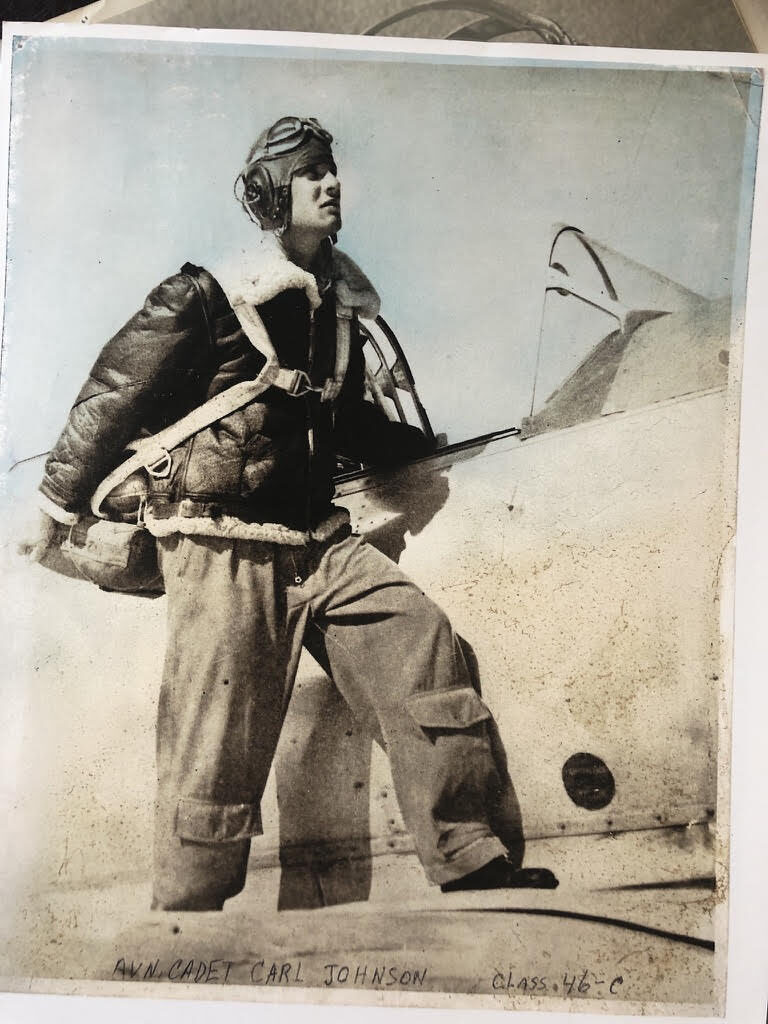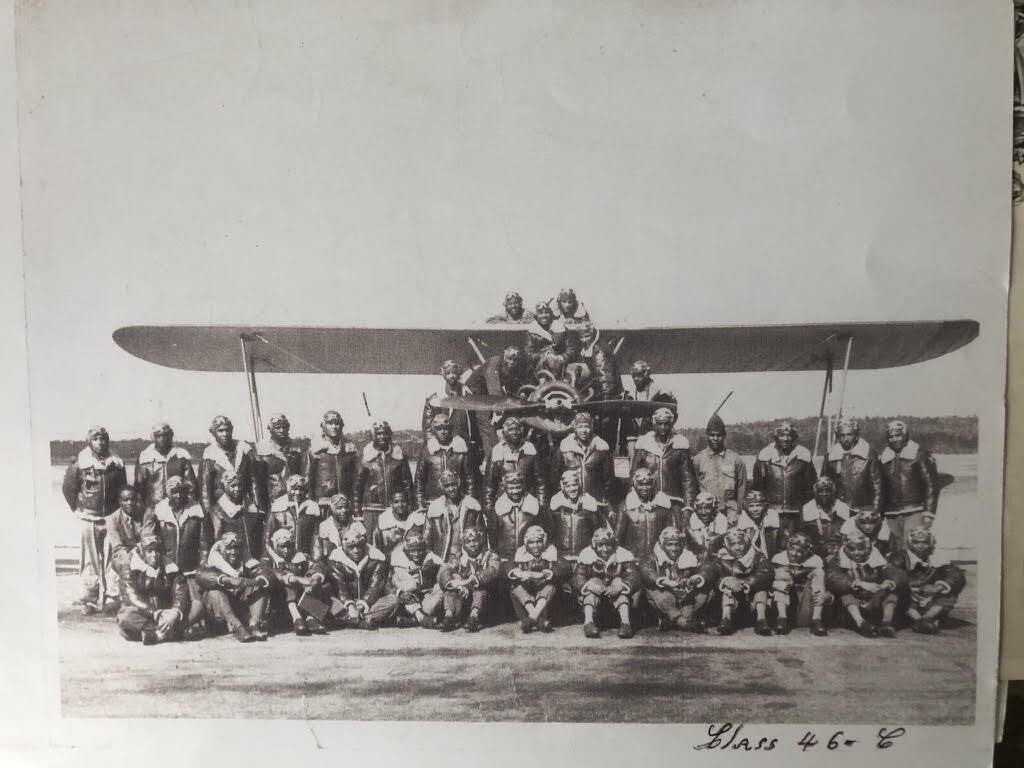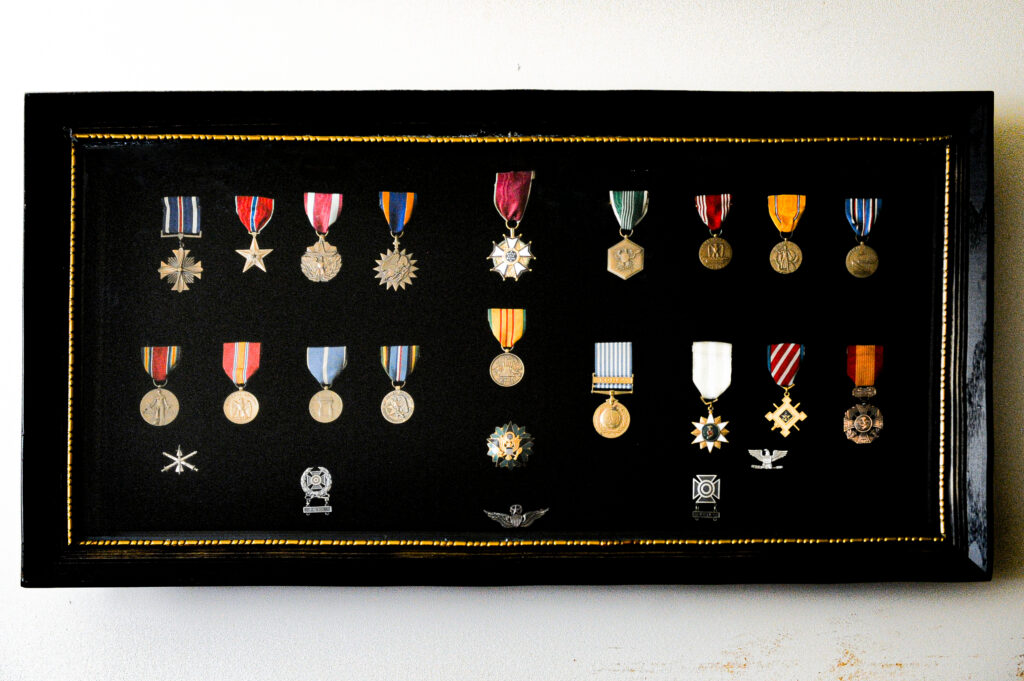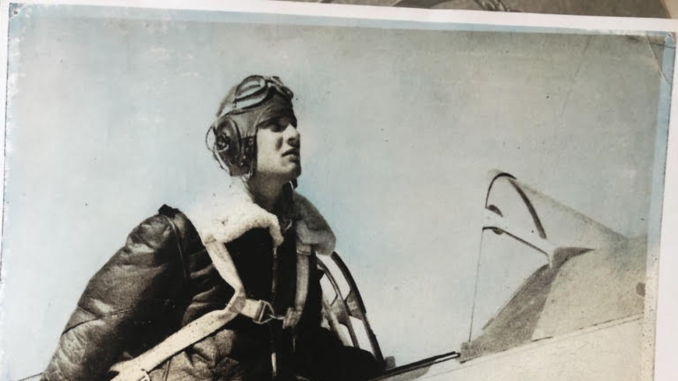
THE LAST TUSKEGEE AIRMAN
By Jill Devine
The decision that changed Carl Johnson’s life came in 1945, and it was one he did not make for himself. It was delivered in an envelope to his home in Bellaire, Ohio, in the form of a military draft notice.
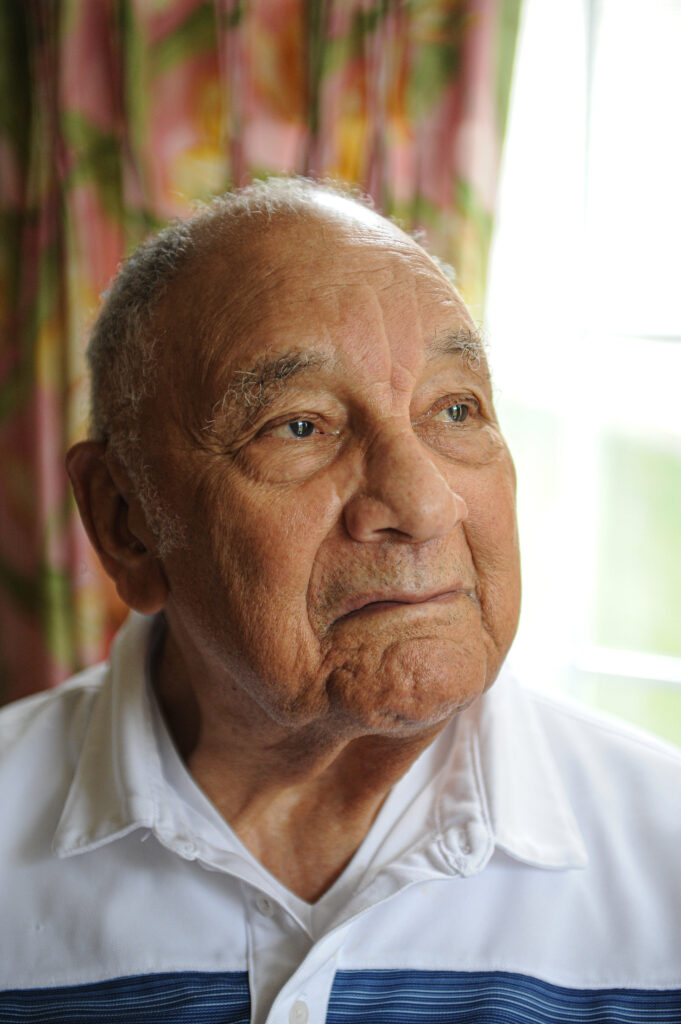
Johnson was studying at Ohio State University to become a dentist, but he left his textbooks behind and headed to Fort Hayes in Columbus, Ohio, for induction into the U.S. Army Air Corps. He had no idea that he would soon earn his wings and that his name would be recorded in history. You see, Johnson was one of the very last graduates of the now-famed “Tuskegee Airman” program, established in 1941 to train Black pilots at the Tuskegee Army Air Field in Alabama when the U.S. military was still segregated. He was the last to train at and earn his wings at the Tuskegee facility.
“A lot of my friends were drafted before they finished high school, so I knew it was coming,” said Johnson, who today is 95 and lives in the Potomac Green community in Ashburn. “I didn’t get to choose, but I was glad that I got Air Corps instead of Infantry.”
Johnson remembers making model airplanes as a child. He also fondly recalls going down to the Ohio River each day and excitedly watching the airmail plane fly its route down the river to Cincinnati and Louisville and back. But he never dreamed he would one day become a pilot. He had never even been on an airplane.
Initial stops in the Army took him to Indiana and then Texas before he and 14 other Black draftees were selected for pilot training and given tickets to Tuskegee. When the Black men boarded their train, they were directed to coach seats, even though they had tickets for Pullman sleeping cars.
“The conductor said they had no Pullmans left, and we refused to go to coach, so they threatened to have the military police arrest us,” Johnson said. “We took seats behind the engine in the heat, with open windows all the way to Alabama, and they wouldn’t let us use our meal tickets, because we couldn’t go to the dining car.”
By the time the group arrived in Chehaw, Alabama, a day and a half later, they were tired, hungry and covered in coal soot. “That was our welcome to Alabama,” he sighed.
Like all the Tuskegee Airmen, the men chosen were the best of the best, and Johnson quickly found himself soaring through the air. That doesn’t mean there weren’t humbling moments — like the first time he piloted a plane solo.
“I made two landings and my third landing, my last landing, I really greased it in [made a smooth landing], and I was really proud of myself. I looked over to see if my instructor was watching and that’s when I ground-looped,” Johnson said with a chuckle. (A ground loop means a pilot accidentally touches a wing to the ground causing the airplane to spin in a circle.) “I wasn’t paying attention … and it taught me a lesson. I never ground-looped again in the next 37 years.”
His time at Tuskegee produced some of the best friendships and memories of his life. A case of appendicitis delayed his training and caused him to earn his wings after his classmates, in 1946, making him the last Tuskegee Airman to graduate. The program was disbanded, and only later was it made famous through books, documentaries and feature films, such as 2012’s “Red Tails” starring Terrence Howard and Cuba Gooding Jr.
“If you had asked me back then who I was, I would have just said I was an Army pilot,” said Johnson. “No one called us Tuskegee Airmen or Red Tails back then. I never heard anyone describe us using those words until the 1970s.”
Although he entered Tuskegee too late to fly on combat missions like the airmen portrayed in the movies, he knew many of them well.
“The pilots who flew in Europe were the best group of people I have ever known,” said Johnson, who flew in the 617th Medium Bomb Squadron. “I lived with them, and we ate meals together, but I never once heard them brag about their accomplishments.”
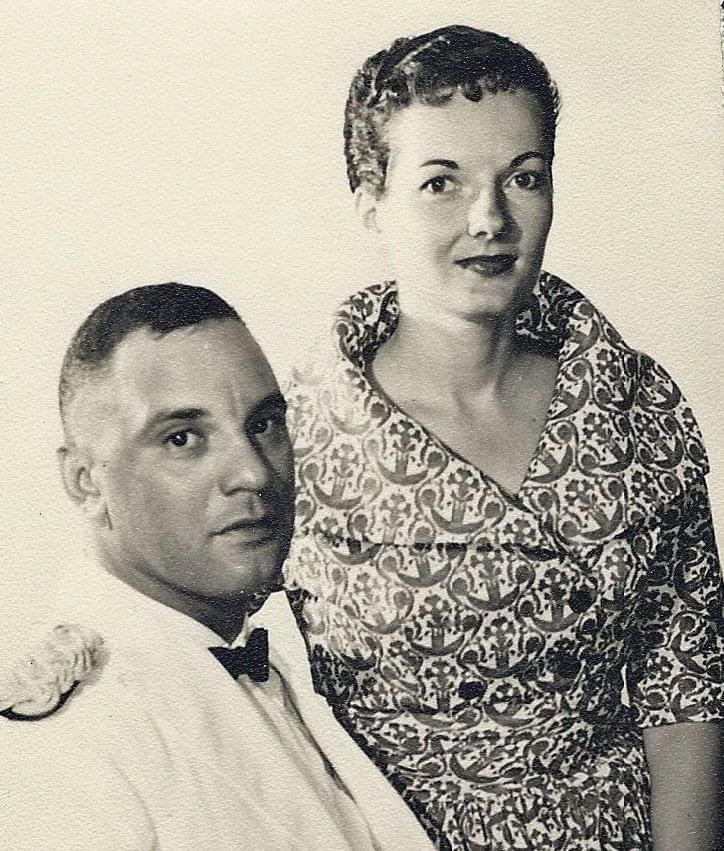
With the war over, Johnson was discharged from the Army in 1947. He returned to finish college at Ohio State, where he met his wife, Nancy. While in school, he joined the Ohio National Guard and later returned to active duty as an Army aviator, a role he proudly filled for the next 24 years.
During his military career, Johnson served in Korea and also in Vietnam, where he was commander of a combat aviation battalion made up of seven companies and over 1,000 men.
“The personnel that I commanded in Vietnam … they must have thought pretty highly of me because a lot of them sent me letters after I had my change of command,” Johnson said. “They compared me with the commander they had afterwards, and it was apparent they liked me a whole lot better.”
He received numerous awards and medals, including the Distinguished Flying Cross for heroism in Vietnam. He achieved the rank of full colonel before leaving the service and going on to hold positions at the Department of Defense and the Federal Aviation Administration as well as commissioner of airports in Cleveland and deputy director of Pittsburgh International Airport.
Johnson said things greatly improved for Black people in the military during the years he served, but racism never ended completely. “I could sit in a classroom or meeting and [fellow officers] would say racist slurs or jokes right in front of me.”
Johnson recalled the time he and his wife were told by his post commander in Puerto Rico to move from the comfortable, modern quarters they were assigned upon arrival to inferior quarters once the commander realized Johnson was Black. “The kitchen sink in the new apartment was so small my wife had to use a bucket to wash dishes.”
Despite such indignities, Johnson holds no grudges and cherishes his memories of Army service. He and his wife, Nancy, moved to Ashburn in 2012. The walls of Johnson’s home are covered with photos and keepsakes from a lifetime of personal and professional achievements. After almost 67 years of marriage, Nancy passed away in 2018, and photos of her and their children and grandchildren hang side by side with military memorabilia, such as the flag that was flown over the Pentagon in Johnson’s honor, his framed replica of the Congressional Gold Medal presented to the Tuskegee Airmen, and cases of military awards and decorations.
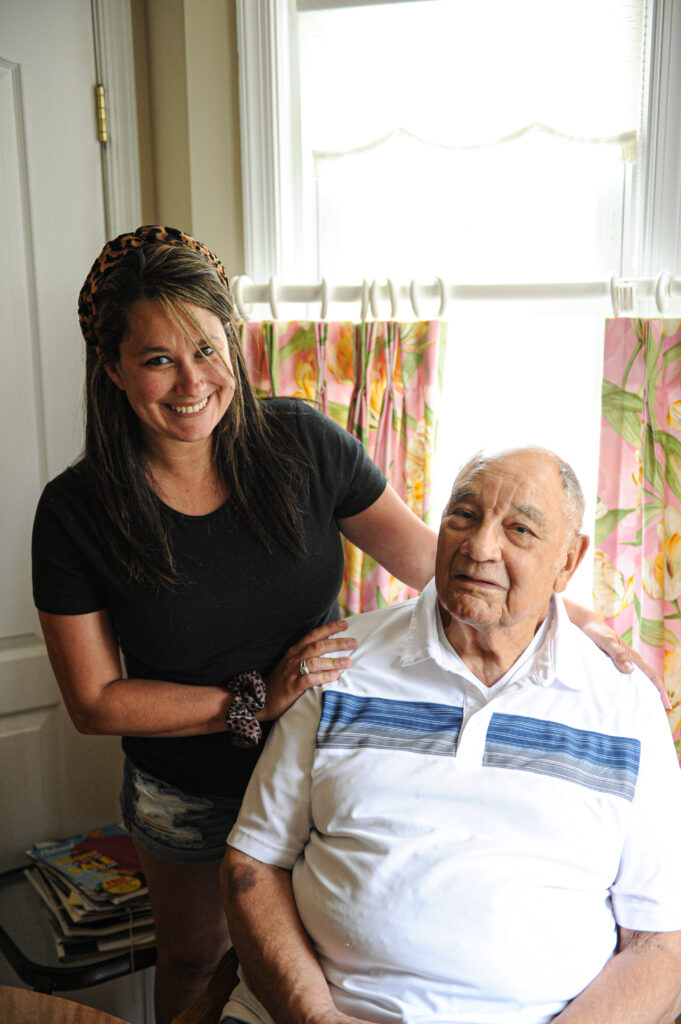
His granddaughter, Sancia Winslow, drives from her Round Hill home every week to help Johnson. She says growing up she was not aware of her grandfather’s military accomplishments and is just coming to realize the mark he made in history.
“He is very humble,” Winslow said. “To me, ‘Pap’ and my grandmother were a loving constant in my life. They wanted to spend time with me and my sister, taking us to swim lessons, sledding and amusement parks. I am incredibly proud of him and I’m thankful that my own children have formed special bonds with him that they will cherish forever.
In May, the East Coast Chapter of Tuskegee Airmen, along with locals from the Ashburn American Legion, the Loudoun County Sheriff’s Office and Mission BBQ honored Johnson’s 95th birthday with a festive drive-by parade and celebration in front of his home.
“I was overwhelmed, actually,” Johnson said quietly. “I just didn’t expect anything like that. I have to admit it made me feel important, even though I’m not important. I really appreciated it. It’s a memory I will take with me to my grave.”
Jill Devine is a freelance writer and former magazine editor from Loudoun County who writes for a variety of Virginia publications.

